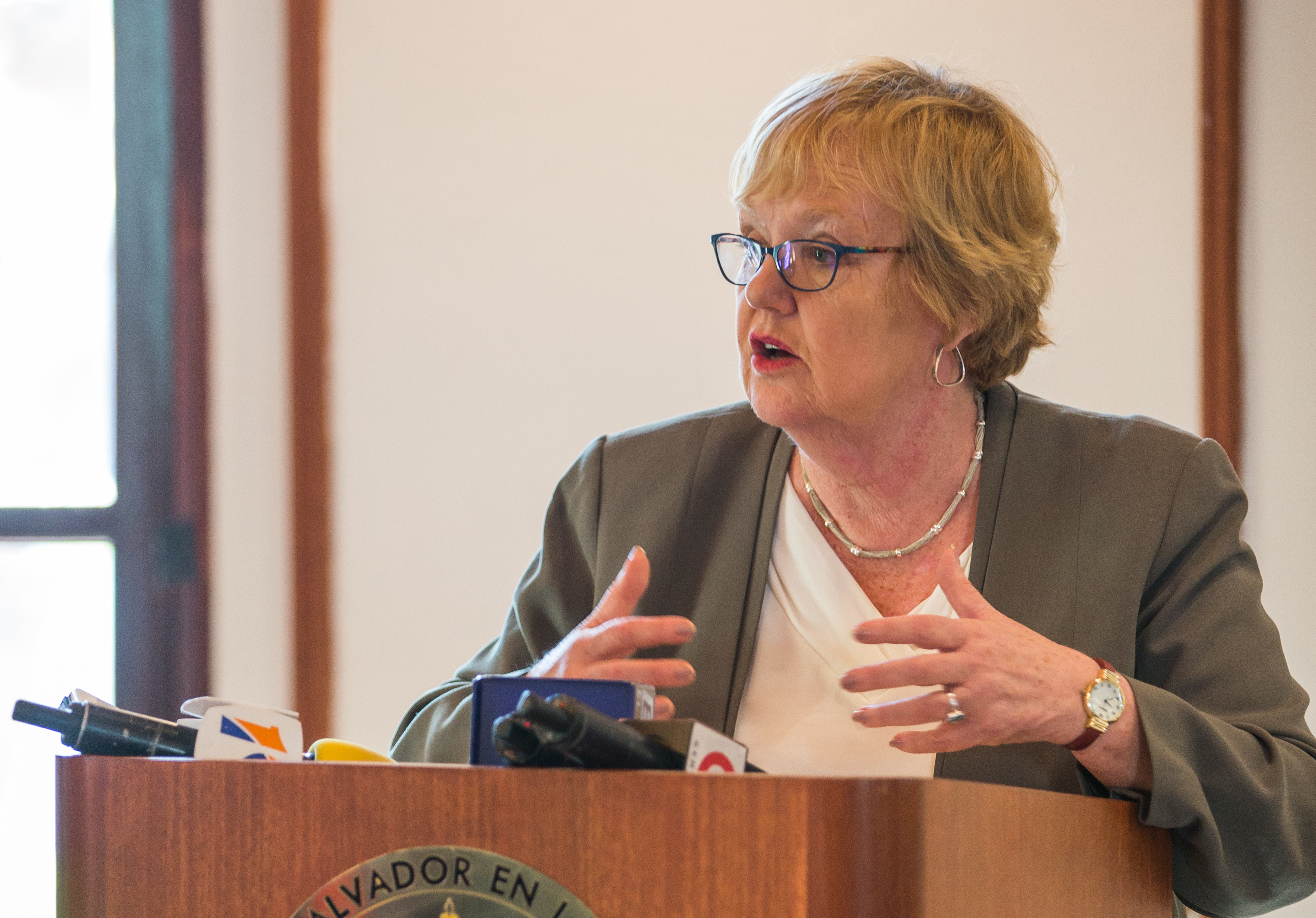


Migrant caravans: tip of the iceberg
It has been an interesting week to be in El Salvador. I came to the country at an invitation from Cristosal to offer a global perspective on the importance of adopting legislation on internal displacement. And yet the news here, as in the United States, speak of caravans traveling to the United States. In the last few days alone, hundreds of people – in two caravans – have left San Salvador, and most of people think that more caravans will leave in the future. The news from the United States is all about President Trump’s belligerent tweets, warning that the migrants will be met by the military and forced to return to their countries. The stories I read here are different – testimonies from desperate mothers and fathers because they feel that the only way to protect their children is by leaving the country, families leaving on foot knowing that the journey will be long.
My colleagues tell me that long before the caravans were headlines, between 300-400 Salvadorans crossed the Guatemalan border every day for a long journey north. The difference now is that they are leaving in groups because there is a perception that it is safer and cheaper. For desperate families who do not have $10,000 to pay for a coyote, joining a caravan makes perfect sense, especially when your life is on the line. From what I see, the causes of migration are many – lack of economic opportunities, fear of gang violence, the desire to reunite with family members in the United States, but all these causes are related. People cannot earn a living when gangs control their neighborhoods; the Central Reserve Bank estimates that 70% of Salvadoran businesses suffer extortion. Family reunification, on many occasions, is a means of activating family networks that provide protection to their most vulnerable members.
I find it incredibly sad that so many people decide to leave now – during a presidential campaign in El Salvador. It is as if they have no hope that any candidate will generate the necessary changes so that they can live with safety and dignity in their country. Many Central Americans feel that the peaceful and democratic means to make a change have been exhausted and, instead of resorting to violence, they decide to escape. The government of the United States used to say that Cubans voted with their feet when they undertook the dangerous journey towards the United States. The current administration is not saying that now, but Salvadoran, Honduran, and Guatemalan people are actually voting with their feet. They are voting on the security policies of their governments. While homicide rates have marginally reduced, the perception of insecurity and the inability of citizens to seek protection from the state to safeguard their lives and means of work are the cause behind these exoduses.
At the same time, I cannot help but admire the courage of these Salvadorans who are in a position to take the risks inherent in this trip in the search for safety and a better life. After all, this is largely how the United States was established; all of us in my country are descendants of natives, refugees, slaves, or immigrants.
There is a relationship between migrants leaving in caravans to the United States and internal displacement, an issue for which I came to work in El Salvador. As Walter Käilin and I previously wrote, in July 2018 the Constitutional Chamber of the Supreme Court of Justice issued an injunction calling on the government to recognize internal displacement and to develop a law to protect internally displaced persons. The appeal granted the government a period of 6 months to comply with these points. Meanwhile, a bill has been presented to the Legislative Assembly. My impression after a few days of meetings with the government, civil society organizations, the press, and academia is that a lot of work is needed prior to the adoption of the law and there are only two months left.
Despite records of hundreds of thousands of people who have been displaced by gangs and widespread violence in El Salvador, Honduras, and Guatemala, none of these governments has yet adopted an internal displacement law. So far, Honduras is the only country in the region that recognizes internal displacement, and an inter-institutional displacement commission has been appointed, but no law or policy has yet been adopted.
Recognizing the fact that people are displaced by violence in a country and taking steps to protect and assist victims is a responsibility of governments. Governments everywhere have a responsibility to protect their people, including displaced people. People do not lose their rights when they are displaced and governments have a responsibility to this sector. Certainly, at a time when large numbers of people choose to leave El Salvador, it is incumbent upon the government to do everything possible to ensure that its citizens can live in safety and dignity. The approval of a law that defends the rights of internally displaced persons would be an important step in this matter.


Dr. Elizabeth Ferris: Research Professor at Georgetown University. She has worked in the humanitarian sector for more than 20 years. She has taught at different universities in the United States. She is currently a Senior Research Fellow at the Brookings Institution.
The original article in Spanish can be accessed through the link below: http://blogisim.tumblr.com/post/179637727835/caravans-from-el-salvador-the-tip-of-the-iceberg



Portal de monitoreo a vulneraciones de derechos humanos
El equipo de investigación de Cristosal brinda monitoreo constante a las violaciones en materia de derechos humanos, para brindar información oportuna y certera sobre las causas y efectos de estas sobre las poblaciones vulneradas. Alimentado por datos provenientes de instituciones Estatales, de sociedad civil y de cooperación internacional, sus publicaciones fortalecen la labor de defensa y promoción de los derechos humanos en el Norte de Centroamérica.